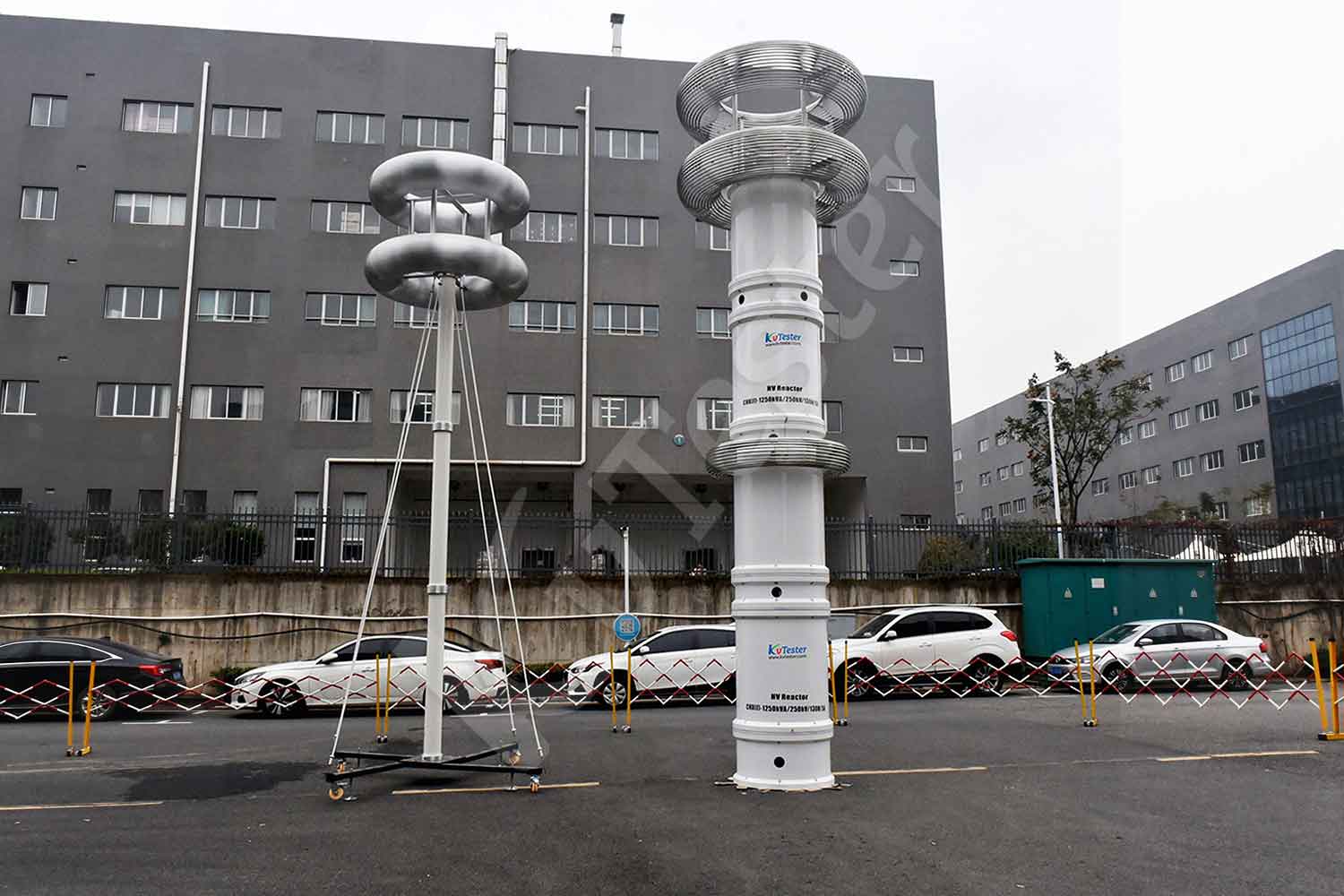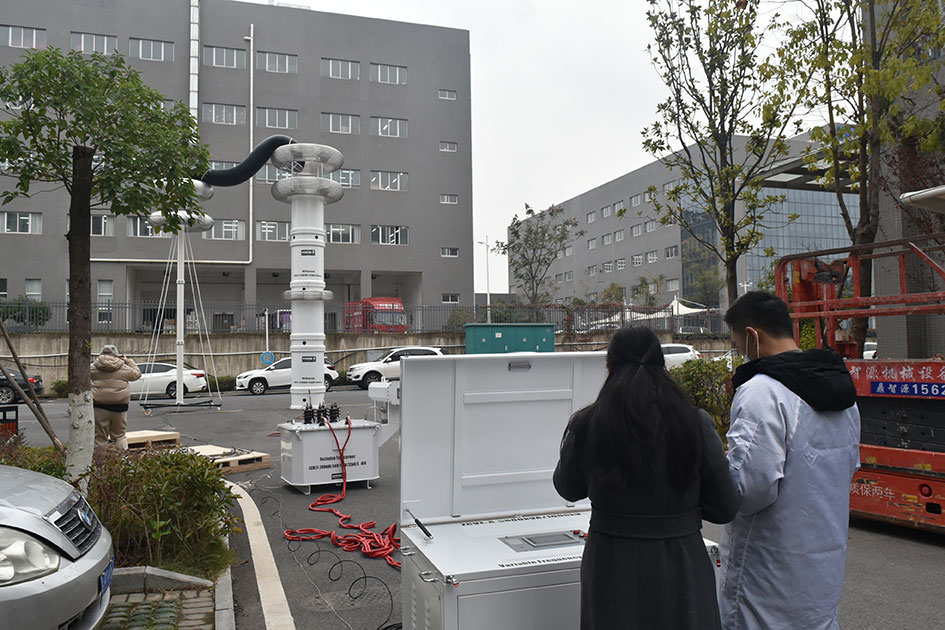With the vigorous development of the power system, the single-machine capacity of each power operating equipment in the system is getting larger and larger, and the voltage level of the transmission is getting higher and higher, so the requirements for the test equipment of the operating equipment are also increasing. If conventional high-voltage test equipment is used, the capacity of the required test power supply and the capacity of the test equipment are as high as several thousand kVA Due to the large capacity of the test equipment, for the field test, the equipment is cumbersome and unsuitable to carry ; and as the test power supply The capacity is large, and it is very inconvenient to find a suitable power supply on site.
In order to meet the test needs of large-capacity, high-voltage (ultra-high voltage) electrical equipment, this booster device adopts the principle of series resonance, and uses an adjustable reactor to match the capacitance or compensation capacitor of the device under test (capacitive) to form resonance. In this way, the test power supply only bears the active power component, which is only 1/Q times the capacity required by the subject, and the capacity and weight of the test equipment are greatly reduced. It is an ideal high voltage source.

Choosing appropriate inductance and capacitance values is crucial for the performance of series resonant circuits. The following are the key factors and steps to consider when making this choice:
1. Inductance selection
① Frequency considerations:
The impedance of inductance varies at different frequencies. Firstly, determine the operating frequency of the circuit, and then select an inductor that can provide appropriate impedance at that frequency.
② Current demand:
Select inductance based on the current requirements in the circuit. A larger current usually requires a larger inductance value.
③ Inductance type:
Choose the appropriate type of inductor according to the application requirements, such as coil inductor, ferrite inductor, or ceramic inductor. Each type has its specific advantages and applicable scenarios.
④ Inductance parameters:
Consider parameters such as DC resistance (DCR), saturation current, and temperature rise current of the inductor. These parameters will affect the performance and reliability of the inductor.
2. Capacitor selection
① Circuit requirements:
Understand the input and output capacitance requirements of the circuit. This involves requirements such as filtering, storing energy, or improving response speed.
② Frequency response:
The impedance of a capacitor is related to frequency. When selecting input and output capacitors, it is important to ensure that they have appropriate impedance at the operating frequency of the circuit.
③ Temperature stability:
If the application requires capacitors to have stable temperature characteristics, then capacitors with lower temperature coefficients should be selected.
④ Capacity selection:
The selection of capacitance is related to the current waveform in the circuit. For example, if there is pulse current or alternating current in the circuit, it is necessary to consider the rated current and saturation current of the capacitor. A small capacitance value may result in an instantaneous inability to provide sufficient current, affecting circuit performance.
3. Testing and validation
After selecting the initial values of inductance and capacitance, actual circuit testing and verification should be carried out. Through testing, it is possible to check whether the selected inductors and capacitors can provide the expected performance under actual working conditions.
In summary, selecting appropriate inductance and capacitance values requires consideration of factors such as the operating frequency, current requirements, inductance type, inductance parameters, circuit requirements, frequency response, temperature stability, and capacitance of the circuit. Through careful evaluation and testing, it can be ensured that the selected inductors and capacitors meet the performance requirements of the series resonant circuit.

Kvtester Electronics Technology Co.,Ltd. is a high-tech enterprise specializing in power testing, testing, research and development, production, and sales of testing equipment. It has been engaged in the electrical testing industry for many years, and its products are of high quality. We welcome customers to come and purchase. Service hotline: 0086-27-81778799, to learn more, visit the official website: www.kvtester.com






